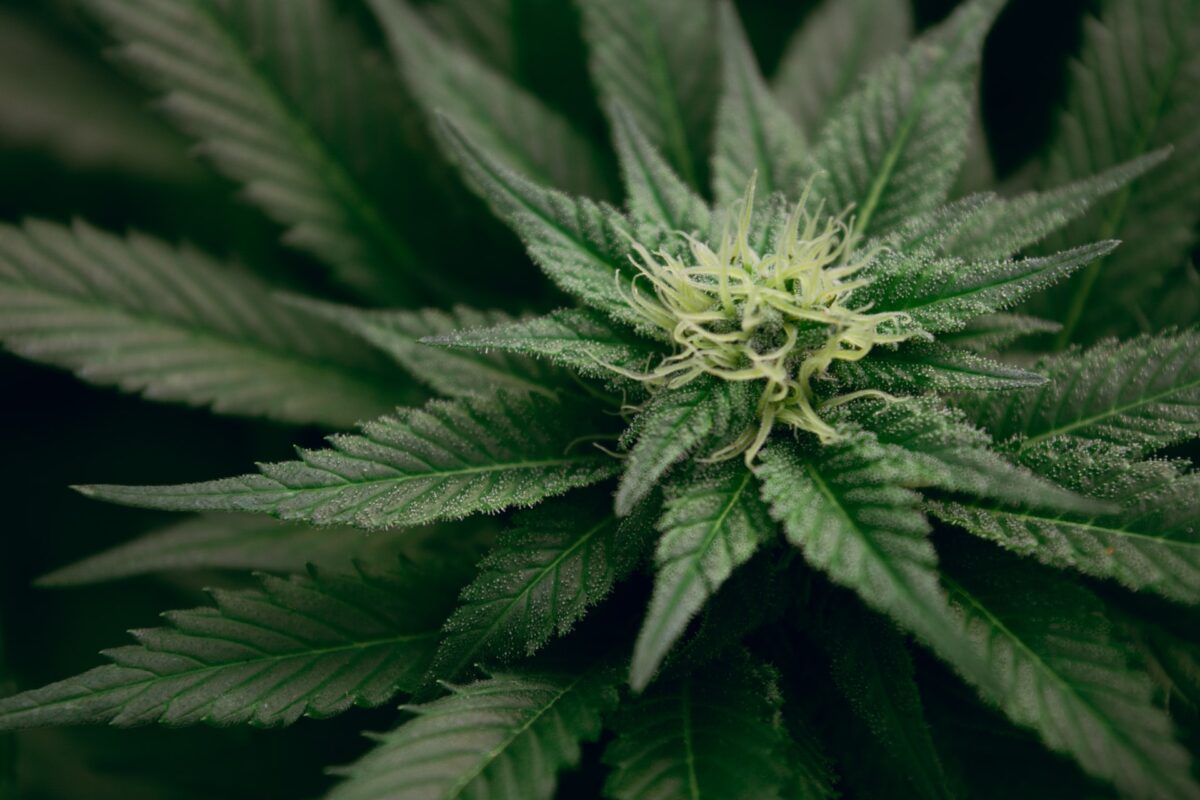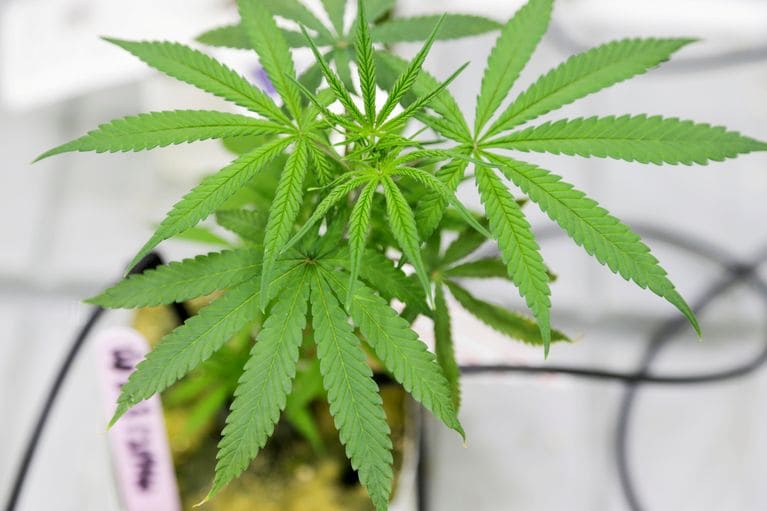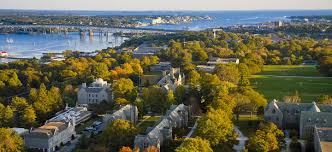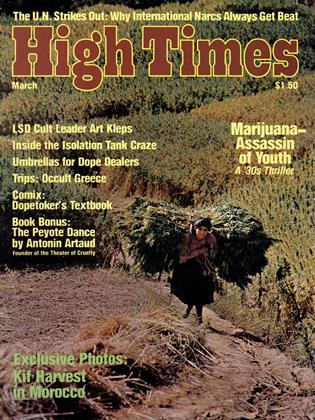Hemp vs Cannabis by Jessica Rosslee at CBD Origin
If you’re a stranger to the world of Hemp and Cannabis, it’s not your fault. That’s the whole point of this article: to give you a detailed description, similarities, and differences between Hemp and Cannabis so that you can decide for yourself between the two.
I believe that all people should have access to information about Hemp and Cannabis if they want it. I don’t want anyone getting hurt by misinformation or left in the dark because they don’t have the time or energy to dig through bias after bias on the Internet. That’s why I’ve written this article, which will help answer some common questions about Hemp and Cannabis so that you can make an informed decision.
Main Differences
You might be wondering: What is Hemp? And what is Cannabis? Are they the same thing? How are they different? Here are some things to know:
Firstly, both Hemp and Cannabis are plants of the species Cannabis sativa. Cannabis is a genus of flowering plants in the Cannabaceae family. Although the word “cannabis” is often used to refer to marijuana, Cannabis actually includes three distinct species: sativa, indica, and ruderalis.
- The difference between the two is that Hemp is grown for its fibers, oil, and seeds, whereas marijuana is grown for its high-inducing resin. Hemp and Cannabis share many characteristics; they grow close to the ground and have an extensive root system that makes them ideal for cultivating in areas lacking nutrients. And while they’re highly similar in appearance, there are a few notable differences between Hemp and Cannabis.
- In the realm of super-strong fibers and twine, you’ve got Hemp. Hemp is a term for cannabis plants grown for industrial use. While Hemp does have a psychoactive counterpart—Cannabis or marijuana—Hemp is usually grown for its versatile oil, seeds, fibers, and protein content, whereas Cannabis is cultivated for its buds (flowers and leaves) and stalks.
- Hemp only has trace levels of THC, whereas Cannabis can have THC levels that can vary up to as much as 30%. While the two plants come from the same family, they exhibit totally different characteristics. For example, hemp plants have lower levels of THC than their cannabis counterparts. This makes it possible to grow Hemp in more places than you can grow Cannabis; it’s also why Hemp is often referred to as “industrial” or “non-intoxicating.” And while Hemp can be grown to make clothing or rope, many people use it to make biofuels or building materials. As a crop capable of growing in almost any climate or setting, Hemp is pretty incredible! The thing about Hemp is that it has no psychoactive compounds that result from smoking the plant. Whereas marijuana contains THC (tetrahydrocannabinol), Hemp contains only trace amounts of THC as well as cannabidiol (CBD), which is an anti-inflammatory and can be used to treat pain and anxiety without any psychoactive effects.
So, how do Hemp, Cannabis, and marijuana all fit into the same sentence?
Hemp is a type of cannabis sativa, and so is marijuana. So then, what about Cannabis? Cannabis is the broad name we give to cannabis plants and species- marijuana and Hemp are both technically a type of Cannabis, but Hemp and marijuana are completely different!
Let’s Dig into the Details a Little More…

Cannabis. Marijuana. Ganja. Mary Jane. Pot. Reefer.
The world has a lot of names for this ancient plant, but you probably know it best as Cannabis. If you’re here, you probably already know that it’s much more than the stuff your friend’s cousin got arrested for smoking behind the school gym in ’99.
But what is Cannabis? Is it legal? What does it do to your body and brain? Where does it come from? And why do we keep talking about Cheech and Chong?
If you haven’t heard of Cheech and Chong, you’re probably a little younger than me. I remember laughing with my cousins while watching it a good few (approximately 15) years ago. But aside from the laughs, I also remember it giving Cannabis, or marijuana, a pretty bad reputation. Sure, when misused, it can cause people to lose their sense of logical reasoning (while stimulating an intriguing hearty sense of humor), but people can also use it for a long list of health benefits.
Cannabis, also known as marijuana, has a long history of medical and recreational use by humans. In
fact, it was smoked in Asia at least as early as the 10th century CE. While there are many reasons not to smoke pot—especially if you are underage—there are also some benefits if you do so legally. Cannabis is cultivated for its recreational value, but it can also help relieve symptoms associated with certain medical conditions and diseases. Currently, 29 states, plus Washington, D.C., have legalized Cannabis for medicinal purposes. The cannabinoids include CBD and THC and are responsible for interaction with endocannabinoid systems in the human body that regulate functions such as sleep, appetite, pain management, and mood regulation. An overwhelming amount of research on these two specific cannabinoids indicates that Cannabis can help treat chronic pain and anxiety disorders like post-traumatic stress disorder (PTSD).
Marijuana, also known as Cannabis, is an ancient plant that has been cultivated for recreational and health purposes. It interferes with brain activity and can cause a few side effects, most notably anxiety and a psychoactive ‘high’ all thanks to the tetrahydrocannabinol (THC) content. Cannabis contains more than 483 different compounds. Cannabinoids are the most active ingredient in the plant. Data gathered from research has shown that Cannabis contains more than 100 different cannabinoids, including CBD and THC. Cannabis has been grown to have extremely high THC levels over the last decade. However, with scientific research on cannabis plant development, the uses have now shifted into the medical world.
What is Hemp?

And now, a quick definition of the hemp plant:
So, you’ve heard of marijuana—or “weed,” or “pot,” or whatever it is you call it. But what about Hemp? More specifically, what does Hemp even look like?
In recent years, Hemp has grown in popularity. As a result, there’s more research on how to grow it and more products being made with it. The US government has taken an interest in growing more Hemp to provide the market with more raw materials for products ranging from food to clothing.
To kick things off, let’s get one thing clear: Hemp refers to plants within the cannabis sativa family that contains less than 0.3% THC. If a plant contains more THC than that, it is not a hemp plant.
Hemp is a strain of Cannabis sativa mainly cultivated for industrial and commercial purposes. This means that the hemp plant—stalks, leaves, seeds, and buds—is used to make a wide variety of products. In contrast, Cannabis is usually grown just for its bud and oils. Hemp is cultivated due to its very high nutrient profile and versatility as an industrial product. Hemp can be made into paper, clothing, rope, and much more. And unlike most other plants that are grown for single uses, Hemp can be grown for multiple uses with the same land area! It’s kind of incredible when you think about it—a single crop that can provide such an abundance of resources.
There are significant differences between Cannabis and Hemp that make them distinct crops.
While both plants are members of the cannabis family, they belong to different subcategories. Cannabis is the most widely used psychoactive drug globally, while Hemp is a versatile agricultural crop.
Cannabis has a long history of being cultivated worldwide, but it was initially domesticated in China around 6,000 years ago. It was later spread throughout Asia and eventually Europe. The plant has dozens of different varieties, with some strains containing more than 50 percent THC (tetrahydrocannabinol), which gives it its psychoactive effect. Hemp also contains cannabinoids like CBD (cannabidiol) and CBG (cannabigerol), which provide therapeutic effects without the high that comes from smoking or ingesting Cannabis.
Cannabis is a mainstay of many nations’ economies, with estimates from 2006 indicating that the industry could be worth an estimated $32 billion by 2012. It is also used for medicinal purposes—most notably for treating medical conditions such as chronic pain and cancer—and recreational use. In addition to these uses, it can be grown as an ornamental plant or used to produce biodegradable plastics and detergents as
Let’s Categorize the Significant Differences
First up, we have differences in cannabinoid content.
Hemp vs. Cannabis: Cannabinoid Content
What’s the difference between Hemp and marijuana? If you ask most people, they’ll probably tell you that it has to do with the THC content in Cannabis. But while there’s more to these plants than just that, it still plays a pretty distinct role in differentiating the two.
The difference between Hemp and Cannabis mainly lies within their chemical composition. That is to say, Hemp contains minimal THC, whereas cannabis plants contain much more THC.
Cannabis and Hemp are two different species of the same genus (a fancy word for family) called Cannabis sativa. Each of these plants is filled with compounds called cannabinoids, which interact with our body’s endocannabinoid system (ECS) to produce various beneficial effects. THC and CBD are two of the most abundant cannabinoids found in the cannabis plant. Still, there are more than a hundred others—and the profile of cannabinoids found within each individual plant will vary depending on its genetics and growing conditions.
Let’s Break it Down
- Hemp is technically defined as any variety of Cannabis that contains less than 0.3 percent THC by dry weight, which means it won’t produce any intoxicating effects when consumed.
- Marijuana (or Cannabis), on the other hand, is defined as a variety of Cannabis with more than 0.3 percent THC by dry weight—meaning it can produce an intoxicating effect when consumed
- Cannabis contains high levels of THC, anywhere from 5-30%
- Hemp cannot contain more than trace amounts or 0.3% THC.
- Hemp will not get you high like a typical Cannabis strain.
- Hemp can be grown for many different purposes, one being CBD oil.
- Most of the world’s CBD oil comes from hemp plants (unless it is marketed as a ‘full spectrum’ CBD oil and contains THC oil as well.
Hemp vs. Cannabis: Difference Between How They Make You Feel

One of the most important differences between Hemp and Cannabis is their effects on the body. As Hemp contains little to no THC, no part of the plant can create a psychoactive effect and is regarded as very safe. A person cannot get high from ingesting Hemp.
Cannabis, on the other hand, contains higher levels of THC, which can create intense psychoactive effects. Cannabis strains vary widely in the amount of THC they have, but the average plant will probably have enough THC to cause some degree of mind-altering high. Some people enjoy this effect, but it’s uncomfortable or not desirable for others.
For those who would like to harness the benefits of the cannabis plant without experiencing the mind-altering, psychoactive effects, hemp products are a great choice. Unlike Cannabis, which can be used for medicinal purposes and is also commonly used for recreational purposes (AKA smoking weed), Hemp is only used for medicinal purposes. This means no high.
A Quick Breakdown
- There are a few key differences between Hemp and Cannabis. Most importantly, the main difference is how each type affects you.
- This primary difference is the level of THC, aka pot’s mind-altering ingredient.
- Some cannabis plants can have THC levels up to 30%
- Hemp doesn’t have enough THC to make you high, so it’s great for people who want to reap the beneficial qualities of Cannabis without the psychoactive effects of THC.
Hemp vs. Cannabis: How They are Grown

Okay, so we all know how different marijuana and Hemp are, right? Well, it turns out that there’s even a difference in how they’re grown!
Not too long ago, Cannabis and Hemp were one and the same. Nowadays, though, Cannabis is typically cultivated for its buds, filled with valuable cannabinoids and terpenes, whereas Hemp is grown for its stalks. Hash oils made from cannabis plants have been around for ages, but recently there’s been a great deal of interest in using Hemp to create similar products. The main reason for this is that Hemp has no psychoactive effects and thus can be consumed without consequence. The other benefit of using Hemp over Cannabis is the fact that it’s much easier to grow and harvest, making it a more cost-effective option. While the final product may look similar to one that uses Cannabis, there are some critical differences between these two plants.
The hemp plant is often cultivated outdoors in larger quantities, and growers are more focused on cultivating the plant for its seeds (to produce hemp seed oils) and the stalks (for its fibrous quality). Recently though, with the increased demand for THC-free CBD oil, growers cultivate more hemp plants for the leaves to make CBD oil.
Cannabis plants are typically cultivated in greenhouses, and there is a significant focus on perfecting the perfect plant and strain. This is mainly because the buds will be rich in terpenes and cannabinoids that most marijuana users are looking for.
Hemp also tends to grow much more hardy than Cannabis because it is subject to the outdoor environment. In contrast, Cannabis requires a more controlled growing condition to produce the desired results.
At a Glance
- Hemp is often cultivated in large quantities in outdoor environments.
- Cannabis thrives in controlled greenhouses.
- Cultivators grow hemp plants for the seeds, stalks, and leaves.
- Cultivators grow Cannabis to extract high levels of terpenes and cannabinoids. In the case of selling dry bud, the plants are grown under stringent conditions to perfect the cannabinoid and terpene levels.
- Hemp plants are more forgiving because they are accustomed to a harsher outdoor environment.
- Hemp grows faster and taller than Cannabis.
- Hemp plants are some of the most robust plants globally and typically grow into hardier plants much faster than their cannabis counterparts.
Hemp vs. Cannabis: What Does the Future Hold?
Hemp is a fantastic crop that has the potential to revolutionize the way we grow and harvest crops. Hemp can be grown almost anywhere, meaning it can take the place of crops that require a lot of land, such as cotton and Hemp. It grows quickly, meaning new hemp farming operations can get up and running quickly—so you’re not waiting for years for your crop to harvest. And Hemp is easy to grow organically, which means more sustainable farming practices all around!
Hemp is a good food source: hemp seed is a popular nutty-flavored snack food that can be ground up and used in recipes (think hemp burgers or hemp cookies). Hemp seeds also contain protein. The proteins found in Hemp are called edestin, which are easily digestible and are believed to help nourish the body better than other plant proteins.
The plant’s fibers can be used to make textiles like clothing, paper, plastics, and building materials. Because it proliferates so rapidly, Hemp also shows promise as a biofuel and could even potentially power cars in the near future!
The industry is growing at a fast clip right now, especially in the US and Canada.
Cannabis has been used for medicinal purposes for centuries. Still, the plant has recently become a hot commodity as countries worldwide loosen their cannabis laws to allow cannabidiol (CBD) and tetrahydrocannabinol (THC) products into the marketplace.
A recent report estimates that the global market for legal Cannabis will be worth roughly $63 billion by 2027.
The growth of the medicinal cannabis market has been driven by an increase in demand for CBD products, which are becoming more accepted by mainstream society as they become available in retail stores and online.
As a result, many growers have invested in CBD infrastructure to take advantage of this rapid growth. As for the future, that depends on the state of legality and regulation across the world. But suppose the previous few years are anything to go by. In that case, it seems like the medicinal use of Cannabis will spread like a slow-burning wildfire, and recreational cannabis legalization will most likely stop being a conversation point as it becomes normalized across the globe. But that’s just my opinion.
Hemp Factsheet
- THC & CBD Content:
Hemp contains high levels of CBD and little to no levels of THC (less than 0.3%)
- Psychoactive High:
Hemp will not make you’ high.’
- Physical appearance:
Tall and slender with solid stalks and thin leaves.
- Cultivation:
Hemp is a hardy plant and grows rapidly into a robust, tall plant. It can be grown in the field for industrial purposes or in a greenhouse for CBD and cannabinoid extractions. With Hemp, both the females and the male plants are useful
- Applications:
- Hemp seed oil
- Protein powder
- Topical products
- CBD oils and other products
- Industrial products
- Clothing
Cannabis Fact Sheet
- THC & CBD Content: Some strains can contain up to 30% THC, while others can contain lower THC levels and higher CBD levels
- Psychoactive High: Some cannabis strains will make users feel ‘high,’ depending on the THC content.
- Physical Appearance: Again, this varies among particular strains. Some strains look similar to hemp plants, with long, thin stalks and branches. Others will be more short and fat, producing thick buds. The shorter and stubbier plants are typically the Indica strains (but there are a few exceptions).
- Cultivation: Cannabis plants are often cultivated in a strict environment to perfect the terpene and cannabinoid profiles. They are often grown in greenhouses.
- Applications:
- Reported medicinal use includes relief from pain, inflammation, anxiety, nausea, and many chronic conditions.
- Euphoric, ‘high’ (typically recreational use)
- Increased sensory awareness (typically recreational use)
FAQ: Frequently Asked Questions
Question: What is the Main Difference Between Hemp and Marijuana?
Answer: The main difference between Hemp and marijuana is the THC levels. While Hemp is a variety of the Cannabis plant species, it contains minimal delta-9 THC. Delta-9 THC is the cannabinoid responsible for the high you feel when smoking or eating marijuana. Hemp contains less than 0.3% delta-9 THC, so it’s legal in all 50 states! Marijuana can contain up to 30% of THC levels.
Question: Is Medicinal Cannabis the Same as Hemp?
Answer: While the terms hemp, Cannabis and marijuana are often used interchangeably in common parlance, they can refer to very different things. For example, medicinal Cannabis is not the same as Hemp.
The difference between the two is that Hemp and medical Cannabis are two different strains of the same plant species Cannabis sativa L. The most crucial difference between medicinal Cannabis and Hemp is in how they affect the brain and body. Hemp has no psychoactive effects, meaning it will not affect your mind or behavior when you use it. Medicinal Cannabis, on the other hand, may contain THC (tetrahydrocannabinol), which causes a high when smoked or ingested.
Question: Is CBD Better than Hemp Oil?
Answer: CBD oil and hemp oil are two popular oils from the cannabis plant. Only hemp oil comes from the stalks and seeds of the plant, while CBD oil comes from the flowers, leaves, and stems.
Comparing CBD oil and hemp oil, people can use both to treat various ailments. However, CBD is best for treating conditions such as anxiety or depression, while hemp oil is best for reducing inflammation or improving skin health.
Which is better? It depends on what you’re looking to treat. But remember, before we go around touting ‘health benefits,’ it is essential to recognize that more research needs to be done on the effects of both these types of oil. Also, some hemp oil can contain high levels of CBD as well while some CBD oils contain both THC and CBD (among other cannabinoids). And if you are confused, simply request the complete list of cannabinoids and terpenes. And make sure it’s a third-party lab report!
Hemp vs. Cannabis: The Bottom Line
So, what are the main differences between Hemp and Cannabis?
Yes, it’s true: Hemp is a type of Cannabis. But these days, Cannabis is often a catchall phrase used to refer to marijuana and other marijuana products. So Hemp and marijuana are both varieties of the same plant—cannabis sativa. Hemp, though, is different from marijuana because it contains only trace amounts of THC (the main psychoactive component in Cannabis), which means that it won’t get you high. However, it has a variety of uses that marijuana doesn’t, like CBD oil (which is used to treat seizures) and hempcrete (which is used as insulation).
Hemp and marijuana are different from one another in some important ways:
- Hemp has low levels of the psychoactive compound THC. This means that it won’t make you high.
- Hemp doesn’t have significant levels of CBD (cannabidiol) or CBN (cannabinol), which are compounds associated with pain reduction.
- Hemp is grown for its seeds and stalks, while marijuana can be grown for its leaves, flowers, and buds.
- Hemp can be made into things like rope, fabric, paper, fuel, food products—and even building materials! It’s also used in many health products like oils and lotions.
If you, like me, want to experience the benefits that Cannabis has to offer, Hemp is an excellent alternative to cannabis strains with a higher level of THC. Hemp has been used for thousands of years as an excellent plant for digestion, pain relief and as an ingredient in healing salves and lotions. It has also been used for thousands of years as food (the seeds are delicious), fiber (a nine-foot-long hemp rope was woven by Norsemen in Iceland back in 1025), and fuel (thousands of years ago, you could even make paper out of it).
Nowadays, you can even get hemp oil to help treat your skin conditions—including acne, eczema, psoriasis, and dandruff. It’s also an excellent massage oil! And if you’re looking for a topical treatment for your cat or dog, you can use hemp oil as a spot treatment or rub on topically.**
There are many ways to use Hemp these days, and there are even cannabis strains that are low in THC. So, at the end of the day, always check the third-party reports to ensure that you know exactly what cannabinoids are in the cannabis products you are buying. Or, to stay on the safe (and legal) side, you can simply seek out hemp products. At the end of the day, it’s up to you (and the law).
Further readings:
Whats the Difference Between CBD Gummies and Hemp Gummies?
Delta 8 THC North Carolina Legal Guide
CBD Origin is the premier source for CBD knowledge and information. Find informative articles, helpful guides, the latest news, and more at CBDOrigin.com




